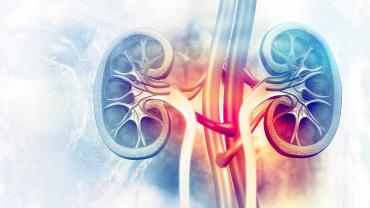
Over 10% of the adult population suffers from chronic kidney disease (CKD). The two leading underlying causes of end-stage kidney disease are type II diabetes and hypertension. Dysbiosis of the gut microbiome may also be present, while inflammation and oxidative stress can be involved as well. In addition, environmental toxins and proton pump inhibitor (PPI) use have been linked to CKD.
According to an article published Monday in Nutrients, researchers investigated the role of dietary fiber and the gut microbiome in renal diets. A dysbiosis in the gut microbiome appears to be a risk factor for the development of CKD and a reduction in renal function significantly contributes to dysbiosis. Current renal dietary recommendations include a reduction of protein intake with an increase in complex carbohydrates and fiber.
One systemic review that included 14 controlled trials and 143 participants with CKD demonstrated a reduction in serum creatinine and urea associated with dietary fiber intake, which occurred in a dose-dependent matter. These individuals had an average fiber intake of 27 grams per day. It is important to note that creatinine is metabolized in intestinal bacteria.
Other studies have demonstrated a reduced risk of CKD with higher daily fiber intake at approximately 35 grams per day and with every 5 grams of increased daily intake of fiber, the risk of CKD is reduced by 11%.
A high fiber diet leads to the production of short chain fatty acids (SCFAs) in the gastrointestinal tract. These play an essential role in T regulatory cell activation, which regulates the intestinal immune system. If there is dysregulation in the immune system, an increase in inflammation may occur in CKD.
Previous research has demonstrated that a high fiber diet can mitigate disease severity and kidney dysfunction in patients with CKD. Higher dietary fiber intake is linked to better kidney function and lower risk of inflammation and mortality.
Some individuals may experience gastrointestinal side effects when trying to increase their fiber intake (this may be seen in irritable bowel syndrome and dyspepsia). Resistant starches should be considered for these patients, as research has shown no side effects (including gastrointestinal intolerance) with the recommended doses. Based on these results as well as the safety of a diet with resistant starch, it makes sense that this a great addition in the treatment of chronic kidney disease. Other nutrients to consider include fish oil, phosphatidylcholine, and n-acetyl-cysteine or glutathione.
By Michael Jurgelewicz, DC, DACBN, DCBCN, CNS